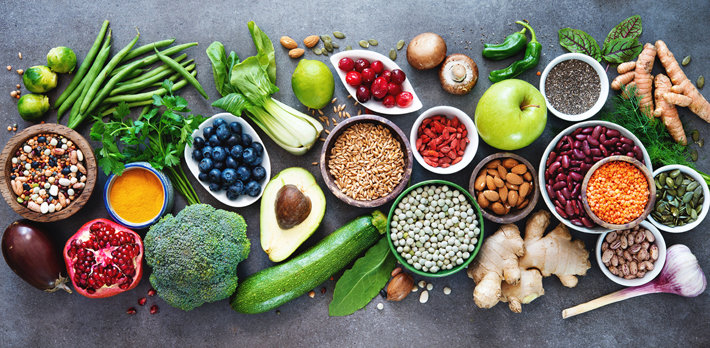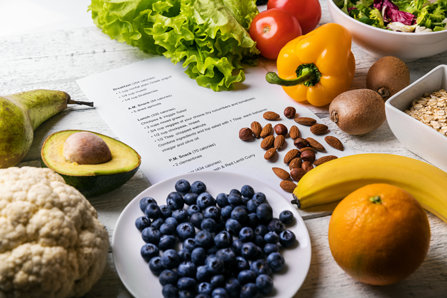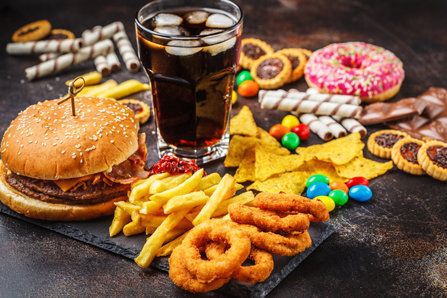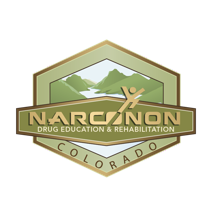Essential Aspects of a Healthy Diet in Addiction Recovery

It’s no secret that drug addiction wreaks havoc on the human body in a variety of ways. Most people who are caught up in addiction are not obtaining the optimum amount of nutrients. When the body is deprived of essential nutrients it cannot perform properly and will begin to deteriorate over time.
Common reasons for nutritional deficiencies during active addiction:
- Skipped meals
- Suppressed appetite
- Nutritional food becoming a lower priority
- Decreased absorption of nutrients due to drug/alcohol abuse
Good nutrition is an essential aspect of restoring a person’s health during addiction recovery. Lack of a balanced diet will create a negative impact on a person’s physical, mental and emotional health. When a person makes a point to take care of themselves by eating properly they will feel more motivated to maintain a life of sobriety. Some important aspects of incorporating a balanced diet during addiction recovery are:
Limiting sugar intake.
Many people in early recovery crave sugar because of the dopamine that is released upon its consumption. While it is ok to indulge every once in a while, eating high amounts of refined sugar can have a negative impact on one’s health in a variety of ways. Sugar is also highly addictive and therefore should only be eaten in moderation.
Drinking plenty of water.
The human body is made up of approximately 60% water. Most health experts recommend that a person drink at least eight 8oz glasses of water per day. Even mild dehydration can have a negative impact on physical and mental performance and can lead to an increase in headaches and a decrease in energy. For these reasons, among many others, it is important to drink plenty of water throughout the day, even when you do not feel thirsty.

Eating fruits.
Fruits are a good source of vitamins and provide a healthy snack. Because of their natural sugars, most fruits taste great and are easy to eat throughout the day. Even though the natural sugars that are found in fruit are healthier than refined sugars found in processed foods it is still wise not to overindulge.
Eating plenty of vegetables.
Vegetables are an excellent source of vitamins and minerals that are needed by the body. Dark leafy greens, in particular, provide an ample supply of these essential nutrients. It is important to incorporate plenty of vegetables into one’s diet on a daily basis.
Getting adequate amounts of protein.
Protein is considered to be a “macronutrient” that the body needs a lot of in order to function properly. It is used to build and repair tissues and make hormones. Protein is used as a building block for creating muscles, skin, bones, blood, and cartilage.
Consuming healthy fats.
The word “fat” often gets a bad wrap due to the misconception that all fats are bad. While there are certainly plenty of unhealthy fats to be found in the “standard American diet” there are also healthy fats that are an important aspect of a balanced diet. Two essential fatty acids that are required by the body to work at peak performance are linolenic acid (Omega-3) and Omega-6. These two types of healthy fats aid the immune, nervous and cardiovascular systems of the body. They are not produced by the body and must be obtained through diet.
Eating complex carbs.
Whole grains provide an excellent source of complex carbohydrates which help fuel the body and produce energy. Unlike the refined grains that are used in white bread, white rice, and white flour, whole grains still contain their bran, nutrients, and fibers making them a much better choice.

Limiting processed foods.
Although processed foods generally taste delicious (there is a lot of research that goes into making them that way) they are usually not very healthy. That is because more emphasis is placed on things like taste, convenience, and shelf-life than vitamins, minerals, and nutritional value. These items are ok to eat every once in a while but shouldn’t be eaten on a regular basis.
Taking vitamins and supplements.
Drug and alcohol abuse depletes the body of essential nutrients through a variety of ways and because of this, it is particularly helpful to take vitamin supplements during the addiction recovery process. Ideally, people would be able to obtain all of their daily nutritional requirements through the food that they eat—however, this is not always possible. This is when the use of a daily multi-vitamin becomes beneficial.
As always, it is important to speak with your medical provider when it comes to your health. A well-balanced diet is important for everyone but is particularly important while the body is healing from a past addiction. A good rehabilitation program will offer nutritional assistance during the treatment process as a part of their services. Speaking with a professional nutritionist or dietician is also a great way to learn more about the role that diet plays in recovery, health and one’s overall well-being.
Resources:


